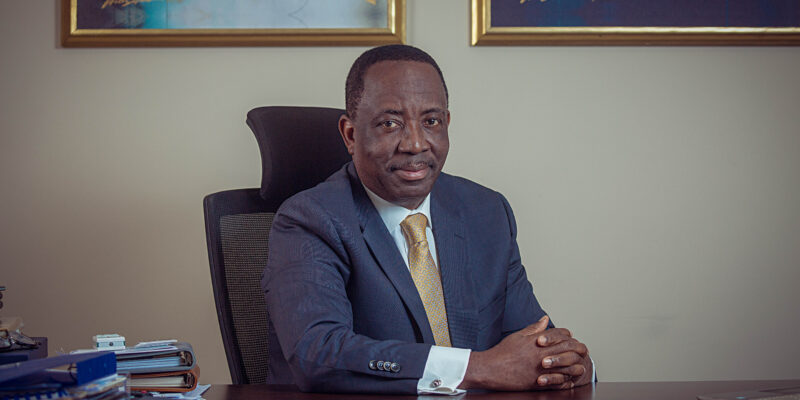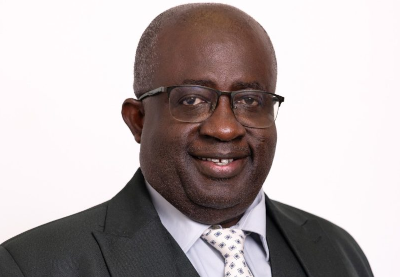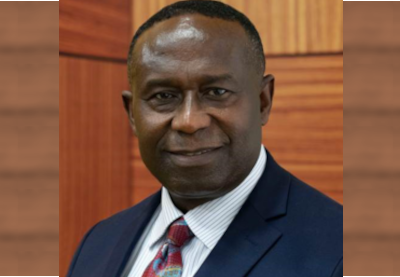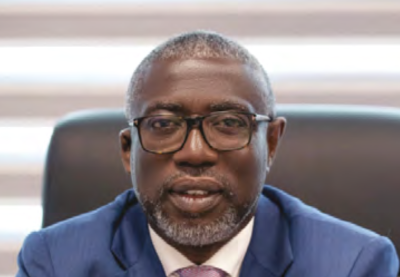TOP GUIDE: In just about three years, KGL has achieved great success and become a key player in the Ghanaian economy. What accounts for your success?
Alex Dadey: I think the history of KGL can be traced from my own history. My journey in the world of entrepreneurship began about thirty years ago. Over that period, I operated on both sides of the Atlantic and in fact, I still have business operations in the United Kingdom. When I was permanently based in the UK, working at the highest levels, I dealt with over twenty-five countries around the world. As someone involved in venture capital, I got to invest and participate in several sectors, including textiles, fintech and several others. We have financed different projects in Ghana, Africa, and other parts of the world. That is the experience that I brought on board in setting up the KGL Group. It is this background, I believe, that accounts for the success that we have had with KGL. I was able to bring along partners that I had been dealing with over the three decades to replicate what we have been doing in Europe and globally.
TOP GUIDE: Tell us about your partnership with the government in pursuing its digitalisation drive.
Alex Dadey: We are not just partnering with government; we are very active in the tech space, generally. One of the major projects that we are involved in now is the digitalization of the national lottery. In most parts of the world, such as in the UK, lottery is a major earner for the government and the economy. This was not the case in Ghana, where the lottery was making losses and we had the National Lottery Authority struggling to pay its bills. This is because the illegal lottery operators had taken over and were doing about 75 per cent of the lottery business in the country. Now, we have to make the distinction between lottery and gambling. The private sector runs gambling, but the lottery should be a preserve of government and under national control. We realised that we could help address this through digitalisation, so we entered the market and now we are providing huge revenues for the government. One other area that we looked at with our partners was the pre mix fuel industry. This is an area that has caused a lot of problems for governments over the years, so we tried to raise funding to digitalise the operation, reduce human participation and by extension, the corruption associated with the sector. The common thread here is that we are, through digitalisation, reducing corruption and human interference to improve government’s revenue mobilisation. We are also dealing with the banks and that operation is growing rapidly. We have about one hundred and fifty people deployed in the banking sector currently.
TOP GUIDE: Is there something about the Ghanaian economy that
drove you to come back and invest in it and which is accounting for the success you are having?
Alex Dadey: I do not think of it as “coming back” because I believe I never left. Even though I went to the United Kingdom after finishing my programme at the School of Administration, University of Ghana in 1986, I continued to invest in the country. I have long been an advocate for diasporan inclusion and have played a leading role in getting the Ghanaian diaspora to invest in the country. When you study the development models of several countries, including the United States of America and Israel, you realise that their citizens in the diaspora are among their greatest assets. I am an example of that. I went to live in the UK and learnt different ways of doing things and I have brought that knowledge and experience back with me to complement and support the local efforts. So, I never left. And most diasporans never actually leave. The host country may be where you make your money but ultimately you have to bring that back home.
TG: As Chairman of the Board of the Ghana Investment Promotion Centre, what factors would you say investors considering investing in Ghana should take note of?
Alex Dadey: I believe the Ghanaian economy is well-positioned for investment. We have a youthful workforce and a stable political and civil environment. In terms of the business environment and infrastructure, we are ahead of our peers. We also have a fairly balanced judiciary and a robust regulatory environment. So, for people looking at emerging markets for investment, I believe we are a strong candidate. I think there are great opportunities in the Ghanaian economy. Obviously, there are some challenges but that is not different from nearly every other economy in the world today. We can also be confident that the government is taking the right steps to address these challenges. So, I would encourage people out there thinking about coming to invest to come and do that. Regarding GIPC, my vision is to transform the way we attract investment into the country. I think that we need to use people who have actually come back to invest as models to attract others who are yet to do so. If someone like me, who has invested in the economy, speaks to people about their experience and encourage them to come and invest, I think they will be more willing to listen and they will feel stimulated. So, we want to use the success stories to sell the message we have. The other thing is that we need to focus on the diaspora, whom I think can bring in some USD 5-7 billion in investment. I have a concept I call “Diaspora Direct Investment” which we should pursue as assiduously as we do with foreign direct investment. Unlike FDI, the investment we get from our diaspora community will not be repatriated; it will stay here so that it can have a deeper and more sustainable impact on the local economy.
TG: What can we learn from other emerging economies as Ghana seeks to recover from the pandemic and consolidate its position as an attractive investment destination?
AD: I don’t think that there’s much to learn from others in these particular times. The situation is so novel that we are all learning as we go along. Having said that, I think we did quite well in managing COVID. The good thing is the President said that we should focus on saving lives ahead of anything else and we were relatively successful in that. I think we are getting back on our feet now. The things we must do are the things that government is doing – cutting expenditure and increasing productivity. Over the last two decades we have had to overcome some turbulence every now and then so you can see that we are a resilient people with a resilient economy. I believe by next year; we will have seen off these temporary challenges and we will be back on the path of sustainable growth.
TG: With the coming into force of the African Continental Free Trade Agreement, what prospects does KGL foresee of replicating its success in other African countries, as trade barriers come down?
AD: We are already in at least ten African countries, so we will be seeking to consolidate that. In lottery, for example, we are leveraging the trust and confidence that people have in our infrastructure, which is critical to any lottery venture, to expand into Nigeria and Ivory Coast. The African Continental Free Trade Agreement, I think, will be helpful, not just for us but other companies seeking to expand regionally and for all African economies as a whole.
TG: Finally, you have recently launched the KGL Foundation. What role is it going to play in pursuing the social responsibility aspirations of the company?
AD: The Foundation is the vehicle through which we will be giving back to the communities in which we operate. That is how my partners and I conceive wealth. We have endowed it with a sizeable amount to enable it to operate independently. It has its own board and its own structure, and we will not be interfering in its operations. What we have done is define the areas in which it is to run – health, education, sports and entrepreneurship, particularly among the youth. Fortunately, we are already seeing some signs of success. In sports and entrepreneurship, for instance, the Foundation is engaging with the Ghana Football Association to sponsor youth soccer and to endow these young people with entrepreneurship skills. We are doing the same with girls’ education where we are giving out a lot of scholarships. My belief is that wealth creation and poverty eradication are two sides of the same coin. We create wealth and use that wealth to reduce poverty by creating jobs and that is the vision that foundation is pursuing on our behalf.














Comments